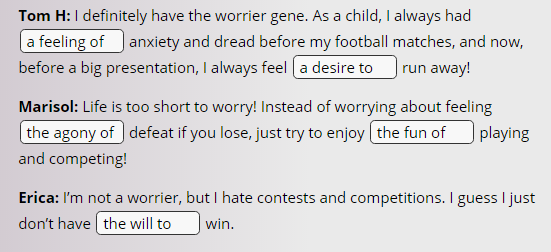I have the following exercise in my schoolbook:
As you can see, I had to match the phrases with the respective gaps.
My question is: Why can I not swap will and desire?
Here is my research (I used the Cambridge Dictionary):
Will - 1) what someone wants to happen 2) the mental power used to control and direct your thoughts and actions, or a determination to do something, despite any difficulties or opposition
Desire - a strong feeling that you want something
Having done this research, I don't see the difference between these two words and in which context each would be more appropriate.

